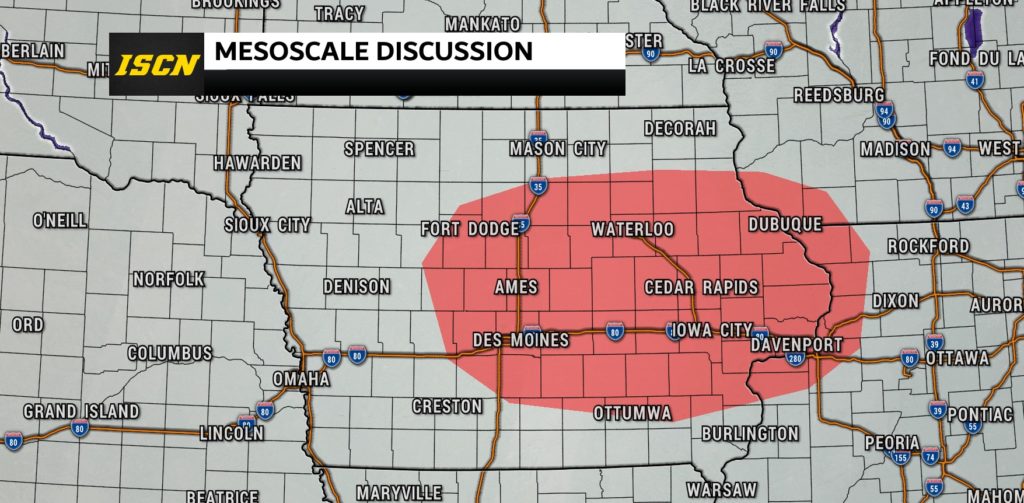What Is a Mesoscale Discussion?

Weather plays a crucial role in our daily lives, influencing everything from outdoor plans to agricultural decisions. As much as we rely on weather forecasts to stay informed, some weather events can be particularly challenging to predict accurately. To address this issue, meteorologists utilize various tools and methods to enhance their forecasting abilities. One essential tool in their arsenal is the Mesoscale Discussion (MD).
What is a Mesoscale Discussion?
In meteorology, the atmosphere is studied at different scales: global, synoptic, mesoscale, and microscale. The mesoscale refers to weather phenomena that cover areas typically ranging from a few miles to a few hundred miles in size. Mesoscale discussions are, therefore, a type of public notice issued by meteorological agencies, such as the Storm Prediction Center, to alert the public and emergency responders about the potential development of significant, short-lived weather events or hazardous conditions within the mesoscale range.
Purpose and Scope
Mesoscale discussions are not the same as weather forecasts; instead, they serve as early indicators of possible hazardous weather conditions. They are usually issued a few hours before severe weather is expected to occur. The primary purpose of an MD is to provide valuable information to meteorologists, emergency managers, and the general public, helping them make informed decisions regarding safety and preparedness.
Contents of a Mesoscale Discussion
Each mesoscale discussion contains essential information that assists in understanding the developing weather situation. The key components typically include:
- Discussion Number and Time: A unique identifier for the MD and the time it was issued.
- Issuing Agency: The meteorological agency responsible for issuing the MD, often accompanied by contact information.
- Affected Areas: The geographical regions covered by the mesoscale discussion.
- Weather Hazard: A clear description of the anticipated weather hazard or event, such as severe thunderstorms, tornadoes, heavy rainfall, etc.
- Probability and Timing: The likelihood of the weather event occurring, as well as the expected time window for the event.
- Discussion Reasoning: Meteorologists provide a detailed analysis of the atmospheric conditions that could lead to the development of the specified weather event.
- Preparedness Actions: Recommendations for the public and emergency responders on how to stay safe and prepare for the impending weather conditions.
- Validity Period: The time frame during which the MD is considered valid. Beyond this period, the situation may change, and updated information may be issued.
Importance of Mesoscale Discussions
Mesoscale discussions are invaluable for several reasons:
- Timely Awareness: MDs provide early warnings, allowing individuals and communities to prepare for potentially hazardous weather conditions in advance.
- Enhanced Decision Making: Emergency managers can use MDs to plan and allocate resources efficiently, minimizing the impact of severe weather events.
- Improved Forecast Accuracy: By keeping track of how weather conditions evolve, meteorologists can refine their forecasts and issue more precise warnings when necessary.
- Community Engagement: Public dissemination of MDs fosters greater public awareness and encourages individuals to take proactive measures for their safety.
How to Access Mesoscale Discussions
Mesoscale discussions are made available to the public through various channels, including:
- Weather Websites: Government weather websites, such as the NWS, provide the most up-to-date mesoscale discussions.
- Weather Apps: Numerous weather apps feature mesoscale discussions alongside regular forecasts.
- Social Media: Meteorological agencies often post MDs on their official social media accounts for wider dissemination.
- NOAA Weather Radio: For those in the United States, NOAA Weather Radio broadcasts MDs regularly.
Mesoscale discussions are an essential tool for meteorologists to communicate the potential development of hazardous weather events within the mesoscale range. These discussions serve as a vital link between forecasters and the public, providing early warnings and detailed analyses of developing weather situations. By staying informed about mesoscale discussions, individuals can better protect themselves, their families, and their communities from the impacts of severe weather events. Remember, weather safety begins with awareness!